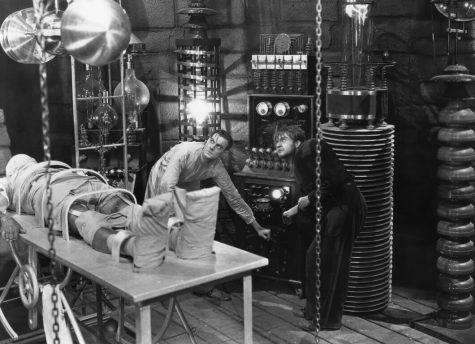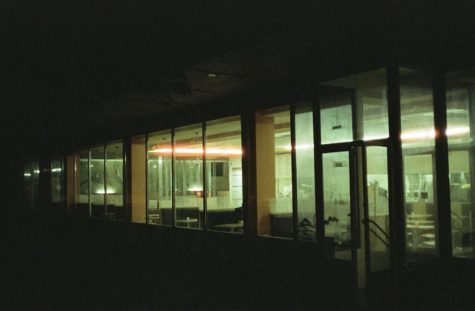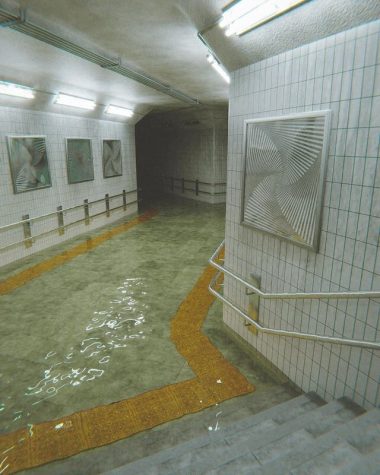Societal Norms in Frankenstein

The Wretch, a creature with many expectations surrounding him. Body parts of the deceased sewn together, created by a mad scientist with underlying family concerns. A grotesque being roaming in a society full of sublimity. Mary Shelley’s novel, Frankenstein, exhibits social criticism and the human preoccupation with appearances within the character of the Wretch and his creator, Victor Frankenstein. Observations are a major piece in the way that our human nature functions. How do assumptions about appearance function with a creature that does not belong in our society? The human preoccupation with appearances is a recurring theme within the novel Frankenstein.
The way that humans wish to be perceived is a recurring event that we witness every day. Symmetrical houses line the streets. Perfectly trimmed hedges and flawless flower gardens. Pricey cars are sitting in the driveways which have been recently washed. The definition of perfection in an environment. “What chiefly struck me was the gentle manners of these people; and I longed to join them, but dared not.”(Shelly, page 93) The monster is observing the DeLacy family in the woods. He sees himself in a reflection in the pond, he knows that he is not the most attractive being so he does not approach them in fear that he may provoke strong emotion amongst the family. “A thousand times rather would I have confessed myself guilty of the crime ascribed to Justine, but I was absent when it was committed, and such a declaration would have been considered as the ravings of a madman and would not have exculpated her who suffered through me.” (85) Victor would not confess to creating the monster. The Wretch had committed the murder of Victor’s brother, William. He knew that if he confessed to the making of the monster, he would have been in the cell instead of Justine and he was afraid of being perceived by his family as a “madman”. There are underlying feelings about why Victor didn’t speak of his crime to his family. He was afraid to upset them or of becoming a disappointment. All he wanted to do at the start of this experiment was to be the first person to complete it. However, in the end, Victor ends up making a monster of himself with lies and the betrayal of his family.
Disproportionate, twisted, hideous, unnatural, and freakish. The Wretch embodies the idea of the Grotesque and societal expectation of appearances perfectly. His name, the “Wretch” even has a grotesque meaning of an unfortunate or unhappy being. He is a creature made from the dead. The Wretch is an experiment that wasn’t tended to correctly. Victor is so focused on the science of the creation rather than the monstrosity that he is constructing, the outcome. He doesn’t focus on the physical appearance aspect of this creation. “I had never yet seen a being resembling me, or who claimed any intercourse with me. What was I?”(143) The Wretch himself is uncertain about what he is. He understands that he isn’t what society deems as “normal”. Victor works on his creation of the Wretch for two years. He then completes the Wretch. “breathless horror and disgust…unable to endure the aspect of the being he had created” ( 60). Victor himself is disgusted by his own work. He is a victim to the human inclination of “appearance”. The Wretch is the living embodiment of the grotesque while Victor portrays him as this.
Dehumanization is the state of deprivation of human qualities. Aliens, Bigfoot, and UFOs are all examples of subhuman beings. The Wretch fits in with these non-human legends. “Slave, I before reasoned with you, but you have proved yourself unworthy of my condescension. Remember that I have power; you believe yourself miserable, but I can make you so wretched that the light of day will be hateful to you. You are my creator, but I am your master; obey!”( 147) He is portrayed as an inhumane beast. He now has power over Victor. “I can make you so wretched that the light of day will be hateful to you,” exhibits this power. Victor used to be followed by the Wretch. This hierarchical feeling has flipped and it is now quite the opposite. Victor is scared to bring another creation into the world because of the consequences of the last. “The gentle manners and beauty of the cottagers greatly endeared them to me: when they were unhappy, I felt depressed; when they rejoiced, I sympathized in their joys.”(97) The Wretch attempts to humanize himself by integrating himself into society. He watches the DeLacy’s within their house. He recognizes that he doesn’t have the basic human societal standards. He wants to be seen as normal. He wants to be a part of something bigger than himself. However, his appearance restricts him and he can’t do what a “normal” being could. The Wretch is seen as monstrous, not as a being. The dehumanization of the Wretch allows for social criticism against him.
The lack of contact between an individual and society allows for differences in essential human characteristics. Victor grew up in a sublime environment with little contact with others. Community has importance. He was constantly surrounded by nature rather than beings. Isolation affects the way that we interact. When we have no interaction with the “norm”, the way that people dress, speak, and act are all affected. “Elizabeth was of a calmer and more concentrated disposition; but, with all my ardour, I was capable of a more intense application and was more deeply smitten with the thirst for knowledge. She busied herself with following the aerial creations of the poets; and in the majestic and wondrous scenes which surrounded our Swiss home-the sublime shapes of the mountains, the changes of the seasons, tempest and calm, the silence of winter, and the life and turbulence of our Alpine summers.”(22) Victor grew up in sublimity, isolated from the community just like Frankenstein. He had his family and nature. He wasn’t equipped with societal norms. He wanted to be viewed as normal when he was creating the Wretch. However, he himself didn’t have essential human characteristics so how was he meant to create a new human with them? “Satan had his companions, fellow-devils, to admire and encourage him; but I am solitary and abhorred.”(255) The Wretch was isolated from normal society. He had no interaction with people who live just like us. “Satan had his companions”, is a comparison between the most evil creature on the earth and him. Even Satan has a community of people in which he is able to create a “norm”. Frankenstein does not and he feels as though he isn’t connected to society. Isolation from others can cause a longing to be like everyone else, to appear like everyone else.
What makes something normal or the “norm”? Where is the line drawn between normal and abnormal? “So much has been done, exclaimed the soul of Victor, — more, far more, will I achieve: treading in the steps already marked, I will pioneer a new way, explore unknown powers, and unfold to the world the deepest mysteries of creation.”(194) Here, Victor wants to be the first to complete the project of the Wretch. He doesn’t seem to think about the consequences of what is to come. He simply creates it. “Seek happiness in tranquility, and avoid ambition, even if it be only the apparently innocent one of distinguishing yourself in science and discoveries.”(199)Victor is speaking with Walton. He is speaking about the fact that he made a mistake with the creation of Frankenstein towards the end of the book. He hopes that Walton will not make the same mistake. Victor wanted to appear smart and entrepreneurial but he evidently ended up in misery. He wants Walton to choose morality over science. The way that victor wanted to appear was a big contributing factor in creating the Wretch.
Social criticism, isolation, dehumanization, the grotesque, and appearances are all factors surrounding impression within the novel, Frankenstein. These themes were all depicted in society, the Wretch, and Victor. Social criticism and the human preoccupation with appearances are all aspects that affect the way beings interact and perceive each other. A scientist who was concerned about others’ opinions created the Wretch, a creature that wanted to have the feeling of opinion. Frankenstein didn’t appear to look like a normal human being. He was perceived as many things that he wasn’t. Victor wanted to appear as a scientist with crazy experiments. He ended up creating a life of misery and in the end became the “monster”. He wanted something that was inhumane and out of the society’s depiction of normal.


